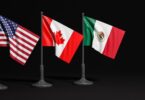The following report is by ESG Today, on February 9th, 2024:
Officially launched last year, the new NZAs provide an assessment of the strength of a company’s carbon emissions reduction profile relative to a global net zero pathway consistent with the Paris Agreement’s most ambitious goals, considering the entity’s ambitions, as well as its plan and governance around emission reductions. The NZAs utilize a 5-point scale from NZ-1 (highest score) to NZ-5 (lowest score).
For its first NZA, Moody’s assigned Italian energy infrastructure provider Snam’s climate transition plan with a score of “NZ-3” or ‘significant,’ with the company’s ambition rated as “well below 2°C,” consistent with the Paris Agreement goals, and its implementation as “solid,” with its action plan on Scope 1 and 2 emissions based on proven and easy-to-scale-up technology, but partly offset by implementation hurdles for its Scope 3 emissions, including having a relatively high share of emissions arising from hard-to-control sources.
Brian Cahill, Global Head of ESG at Moody’s Investors Service, said:
Market participants confront considerable challenges in comparing decarbonization plans across companies because of inconsistent disclosure requirements, differences in the magnitude, coverage and timing of targets, as well as differences in the capacity of firms to implement their business transformation plans and meet their stated targets.
NZAs provide an independent and comparable assessment of an entity’s emissions reduction profile, enabling market participants to better understand the relative positioning of non-financial corporates as they transition to a low-carbon future.
AUTHOR COMMENTARY
I mention this because we are witnessing the rapid transition to this climate-based economics, where everything is priced and taxed arbitrarily by carbon. Carbon is a building block of life: it’s in everything; this is why the elites chose carbon as the commodity and monetary unit to price things in, and therefore created a cute climate crisis narrative as the smokescreen and justification to establish their draconian system on steroids.
Therefore, banks, lending houses, hedge funds, asset managers, investors, etc., will be looking to see just how much a company and government is doing, and eventually each individual person, in terms of these made-up climate edicts.
I’ve covered this in a number of articles:
- Federal Reserve And 6 Largest American Banks To Trial Carbon-Based Social Credit Score System And Climate Investing
- As Forecast: World Economic Forum Panelists Adamantly Demand A Global Carbon Tax Be Implemented Soon
- Hunger Games: World Bank And Cargill Simulated Food Crisis That Starts In 2020 During Pandemic, Predicts Carbon And Meat Taxes In 2024
- IMF Chief Kristalina Georgieva Urges Governments To Implement Carbon Tax To Reduce Emissions
- Australia Contracts Mastercard And Others To Test CBDC Payment System, Used To Facilitate ‘Carbon Credit Units’
- Australian Megabank Begins Tracking Carbon Footprint In The Form Of An Early Social Credit Score
- Natural Resources And Processes Are Now New Asset Classes On The Stock Market That The Bigs Can Buy Up
The rich ruleth over the poor, and the borrower is servant to the lender.
Proverbs 22:7
[7] Who goeth a warfare any time at his own charges? who planteth a vineyard, and eateth not of the fruit thereof? or who feedeth a flock, and eateth not of the milk of the flock? [8] Say I these things as a man? or saith not the law the same also? [9] For it is written in the law of Moses, Thou shalt not muzzle the mouth of the ox that treadeth out the corn. Doth God take care for oxen? [10] Or saith he it altogether for our sakes? For our sakes, no doubt, this is written: that he that ploweth should plow in hope; and that he that thresheth in hope should be partaker of his hope. (1 Corinthians 9:7-10).
The WinePress needs your support! If God has laid it on your heart to want to contribute, please prayerfully consider donating to this ministry. If you cannot gift a monetary donation, then please donate your fervent prayers to keep this ministry going! Thank you and may God bless you.







